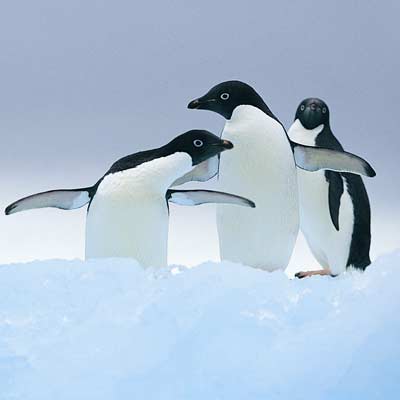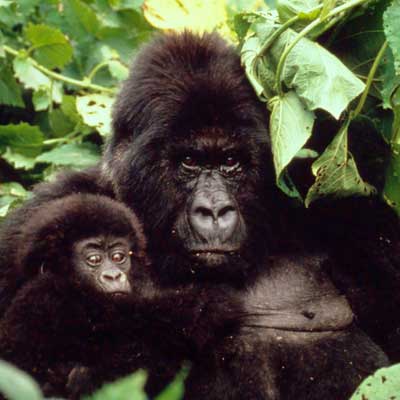Top 10 endangered species in 2010
Orang-utan
 |
The biggest common threat is the destruction of rainforest habitat – 80% of it has disappeared in the last 20 years alone, and only around 2% of what’s left is legally protected. A lot of the logging activity is unregulated, and encourages further damage from road building and poaching in previously inaccessible areas. Orang-utans are also illegally killed for their meat or caught for the pet trade.
We’re working with politicians in Borneo to conserve and restore forest areas. Along with TRAFFIC (the wildlife trade monitoring partner of WWF and IUCN) we also help governments enforce restrictions on wildlife trading. Rescued orang-utans are taken to refuges to be rehabilitated and eventually released back to the wild.
Penguin
 |
Almost all penguins originate from the southern hemisphere – the furthest north is the Galapagos. Many species are found around the Antarctic peninsula, which is one of the three fastest warming places on the planet. Some sea ice cover there has shrunk 40%, and penguin food supplies (such as krill, which depends on the sea ice) have become scarcer.
Although Antarctic species are not currently as at risk as the Galapagos and New Zealand yellow-eyed penguins, we’re concerned about recent fluctuations in populations there and the links with climate change. Many penguins visit the Antarctic, but only the chinstrap, macaroni, gentoo and ice-dependent Adelie and emperor penguins breed there. Some emperor colonies have halved in number over the past 50 years, and some Adélie populations dropped 65% in 25 years.
Mountain gorilla
 |
There are two distinct populations: one in Uganda’s Bwindi Impenetrable National Park, the other in the Virunga Volcano Region on the borders of Rwanda, Uganda and the Democratic Republic of Congo. Conservation efforts have led to a slight increase in numbers (14% in the Virunga population since 1987), but the mountain gorilla’s status remains fragile.
WWF co-founded the International Gorilla Conservation Programme (IGCP) with the African Wildlife Foundation, Fauna & Flora International and local authorities. By improving the livelihoods of local people, encouraging sustainable use of resources and tackling other local issues, the IGCP is influencing attitudes to conservation at all levels.
Giant panda
 |
WWF has been active in giant panda conservation for nearly three decades, working with the Chinese government to create protected areas and help local communities become less dependent on forest resources for their income and daily lives.
Over half the habitat where pandas live is now protected, and corridors are being established to connect key panda populations. But as China develops industrially and economically, new pressures emerge, so there’s still much more to be done.
 0
0 






